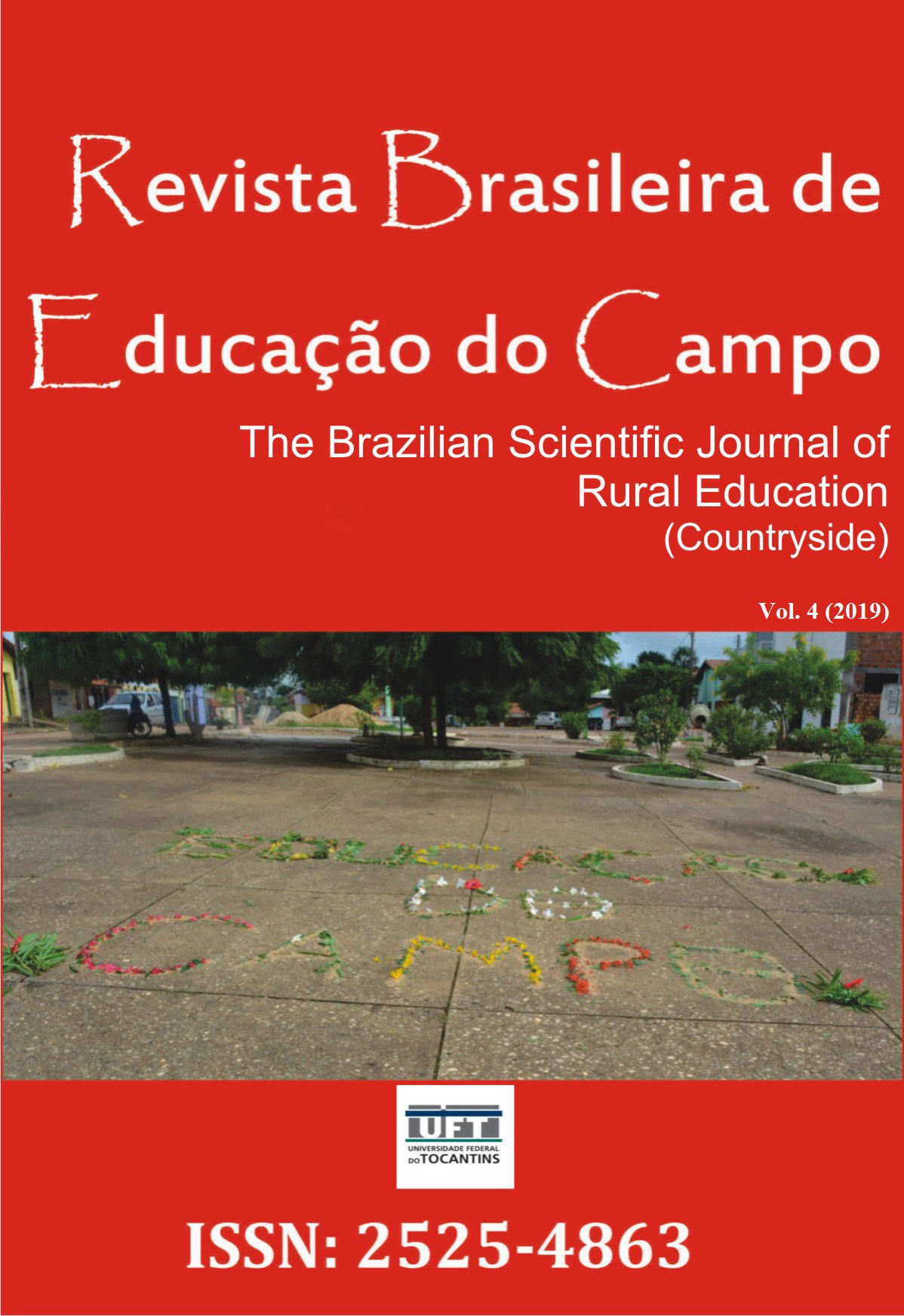Rural Education and Pedagogy of Alternance: UnB experience in the Kalunga historical site and cultural heritage
DOI:
https://doi.org/10.20873/uft.rbec.e7187Abstract
Abstract: The intent of this article is to historicize the dynamics of the Teaching certifications in Rural Education at University of Brasília (UnB) with the communities of the historical site of the Kalunga territory and cities around the quilombo. With this aim, we systematize and analyze the advances, limits and challenges of teaching, extension and research activities carried out in the territory, considering the forms of political and community organization existing in the region, the relationship between culture and resistance form to the production modes that imply degradation of the region, such as mining and agribusiness. We sought to highlight in the extension activities the perspective of the praxis operating in the Community Time seminars, in the theater and audiovisual collectives actions, in the construction challenges of the Kalunga territory research committee. From this performance, it was possible to notice a series of advances in strengthening the process of education, training and social organization of the rural and quilombola population of the region.
Downloads
Literaturhinweise
Almeida, M. G. (2015). Territórios e Identidades dos Kalunga de Goiás. In Almeida, M. G. (Org.). O Território e a Comunidade Kalunga: quilombolas em diversos olhares (pp. 45-68). Gráfica UFG, Goiânia.
Almeida, W. P., & Santos, M. L. (2004). História de Cavalcante. Acervo Ong Berço das Águas, Brasília.
Baiocchi, M. N. (2013). Kalunga: Povo da Terra. 3 ed. Goiânia: Editora UFG.
Bedeschi, L., & Zanchetta, M. I. (2008). Cidadania quilombola. Texto de Luciana Bedeschi. São Paulo: Instituto Socioambiental.
Botelho, N. F., Moura, M. A., Peterson, R. C., Stanley, C. J., & Silva, D. V. G. (2006). Kalungaite, PdAsSe, a new platinum-group mineral from the Buraco do Ouro gold mine, Cavalcante, Goiás State, Brazil. Mineralogical Magazine, 70(1), 123-130. Doi: https://doi.org/10.1180/0026461067010318
Brasil. (2001). Uma história do Povo Kalunga. Ministério da Educação e Cultura-Mec/SEF, Brasília.
Caldart, R. S. (2012). Educação do Campo. In Caldart, R. S., Pereira, I. B., Alentejano, P., & Frigotto, G. (Orgs.). Dicionário da Educação do Campo (pp. 259-267). 2. ed. Rio de Janeiro, São Paulo: Escola Politécnica de Saúde Joaquim Venâncio, Expressão Popular.
Caliari. R. O., Alencar, E., Amâncio, R. (2002). Pedagogia da Alternância e desenvolvimento local. Lavras: Organizações Rurais & Agroindustriais, 4(2).
Costa, V. S. (2013). A Luta pelo território: histórias e memórias do povo Kalunga (Trabalho de Conclusão de Curso). Universidade de Brasília, Brasília.
Fernandes, B. M. (2009). Sobre a tipologia de territórios. In Saquet, M. A., & Spositos, E. S. (Orgs.). Territórios e territorialidades: teoria, processos e conflitos (pp. 197-215). Expressão Popular, São Paulo.
Galli, U. (2006). A História da Mineração em Goiás. Goiânia: Editora da UCG, Contato Comunicação.
Goiás. (2012). História de Goiás. Goiânia, GO. Secretaria de Estado e Cultura. Recuperado de: http://www.secult.go.gov.br/post/ver/140142/historia-de-goias. Acesso em 16 fevereiro 2015.
Gouveia, L. R. (2018). Dificuldades organizativas da resistência quilombola (Trabalho de Conclusão de Curso). Universidade de Brasília, Brasília.
Machado, J. M. (2008). Depósito de Au, Pd e Pt associado a granito, mina buraco do ouro, cavalcante, Goiás: caracterização e modelo da mineralização (Dissertação de Mestrado). Universidade de Brasília, Brasília.
Marinho, T. A. (2008). Identidade e Territorialidade entre os Kalunga do Vão do Moleque (Dissertação de Mestrado). Universidade Federal de Goiás, Goiânia.
Molina, C. M., & Hage, S. M. (2016). Riscos e potencialidades na expansão dos cursos de licenciatura em Educação do Campo. Revista Brasileira de Política e Administração da Educação, 32(3). Doi: https://doi.org/10.21573/vol32n32016.68577.
Moura, C. (1993). Quilombos resistência ao escravismo. 3º ed. Editora Ática S.A - São Paulo.
Veröffentlicht
Zitationsvorschlag
Ausgabe
Rubrik
Lizenz
Creative Commons Attribution License
Creative Commons Attribution License
Proposal for Copyright Notice Creative Commons
1. Policy Proposal to Open Access Journals
Authors who publish with this journal agree to the following terms:
A. Authors retain copyright and grant the journal right of first publication with the work simultaneously licensed under the Creative Commons Attribution License that allows sharing the work with recognition of its initial publication in this journal.
B. Authors are able to take on additional contracts separately, non-exclusive distribution of the version of the paper published in this journal (ex .: publish in institutional repository or as a book), with an acknowledgment of its initial publication in this journal.
C. Authors are permitted and encouraged to post their work online (eg .: in institutional repositories or on their website) at any point before or during the editorial process, as it can lead to productive exchanges, as well as increase the impact and the citation of published work (See the Effect of Open Access).














